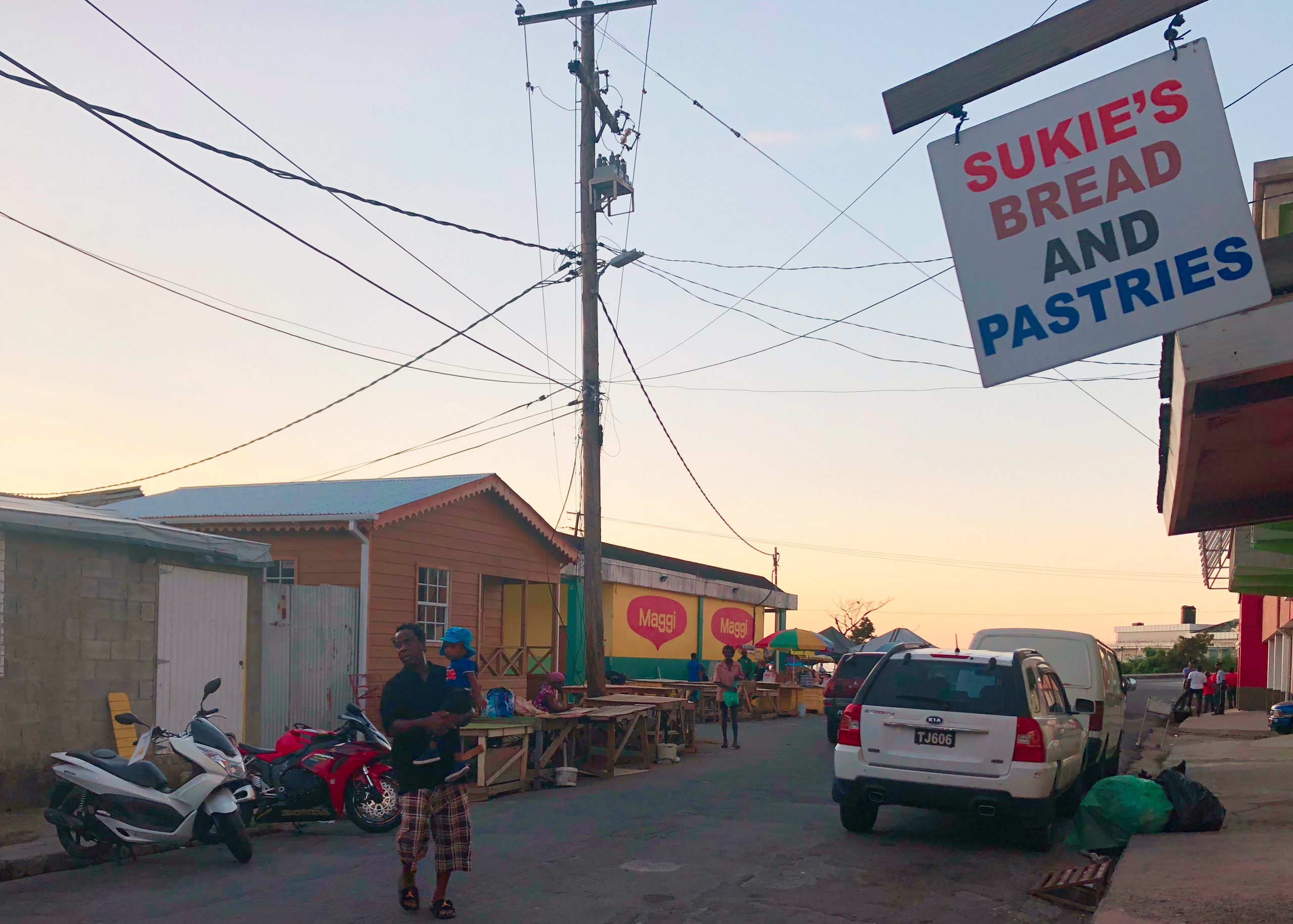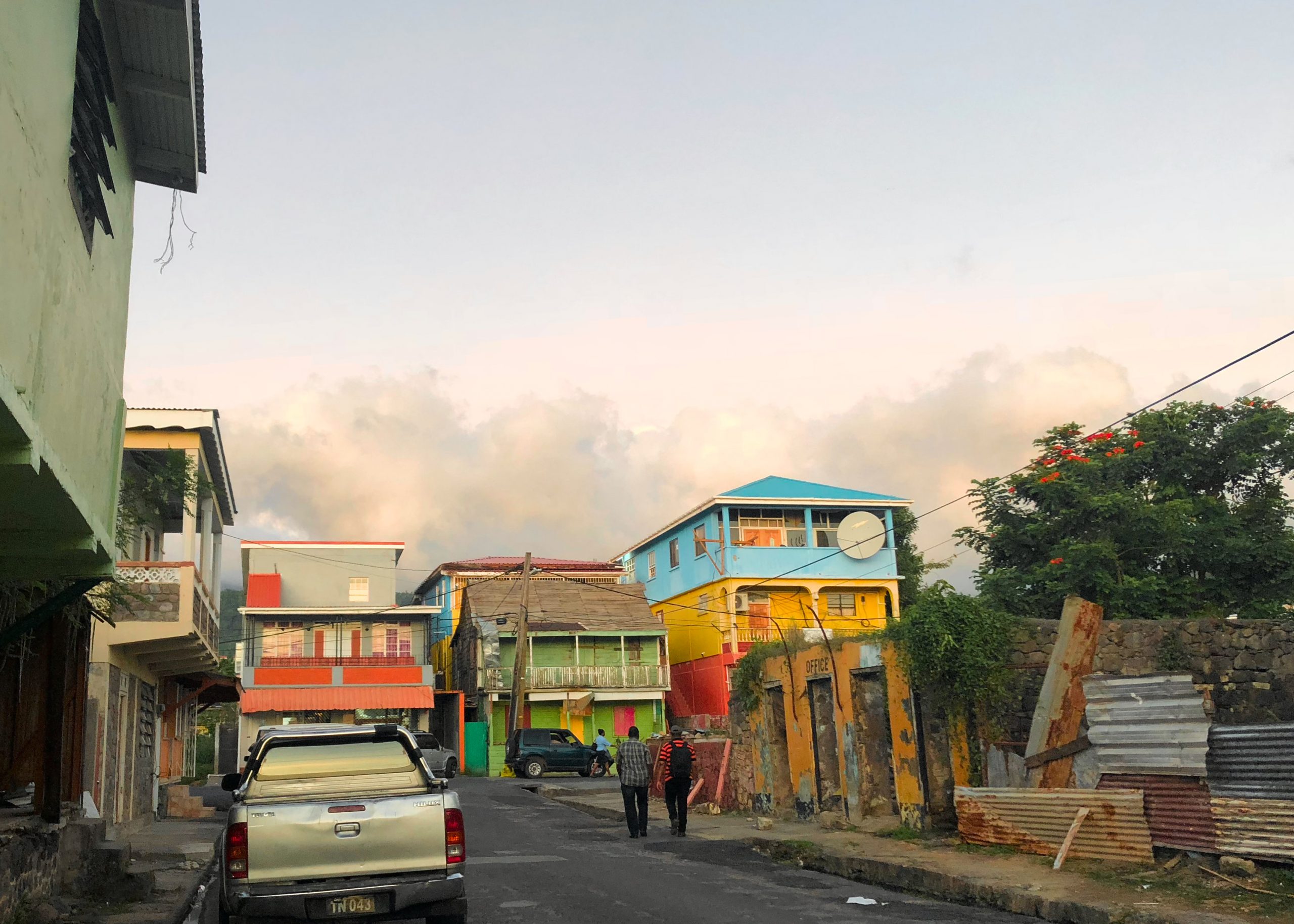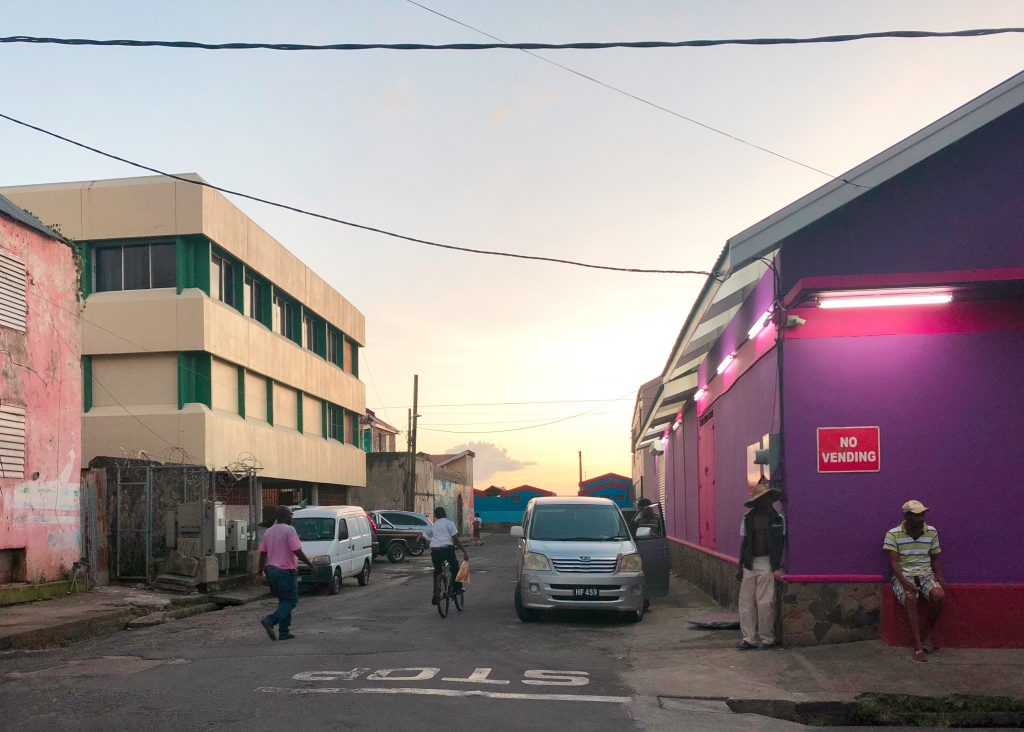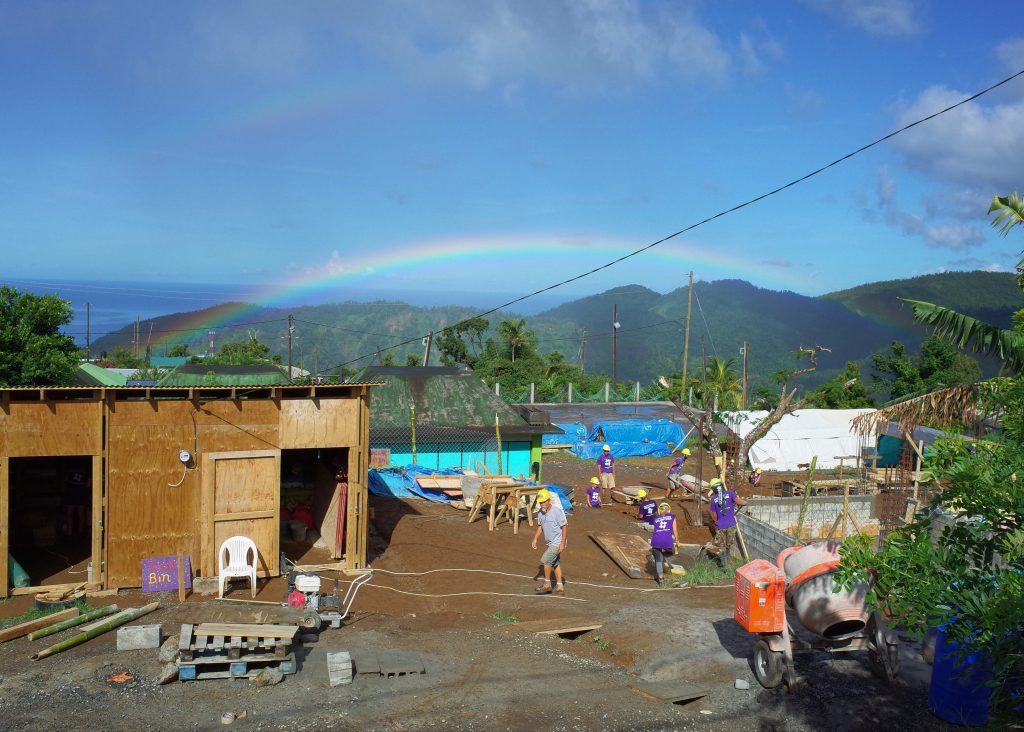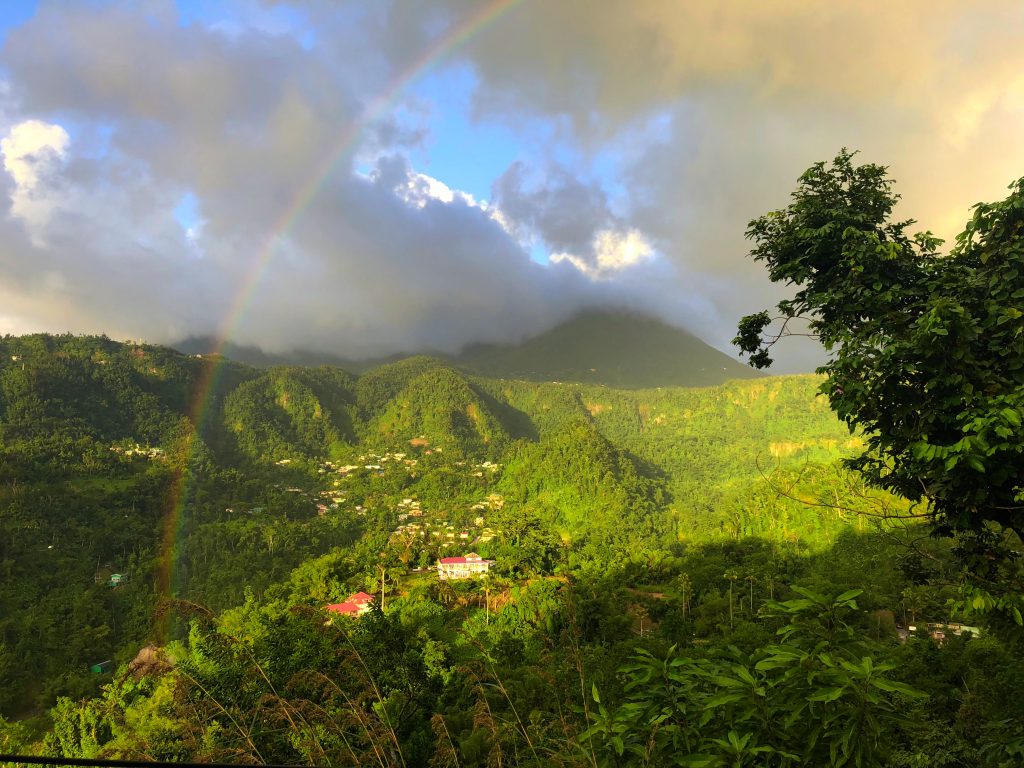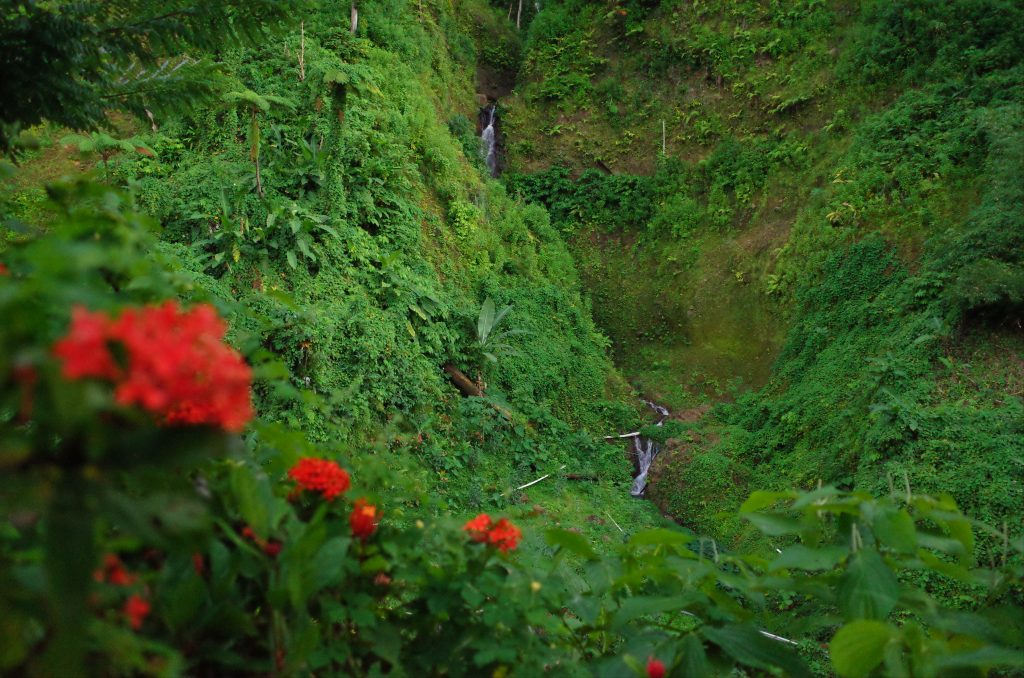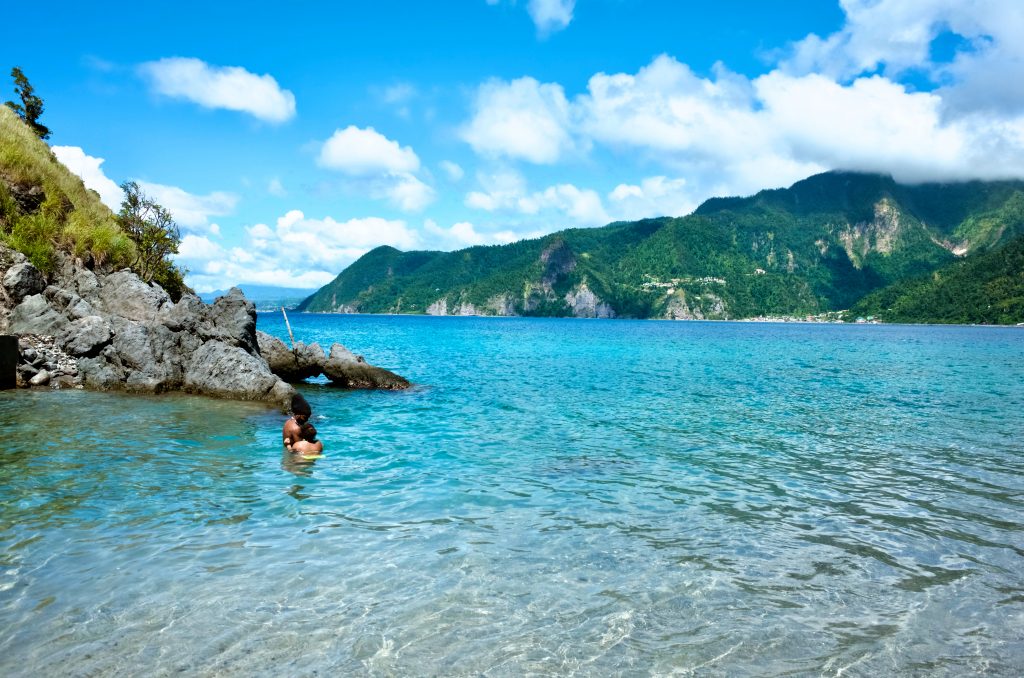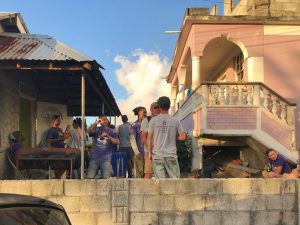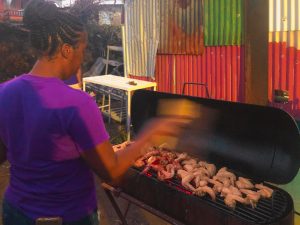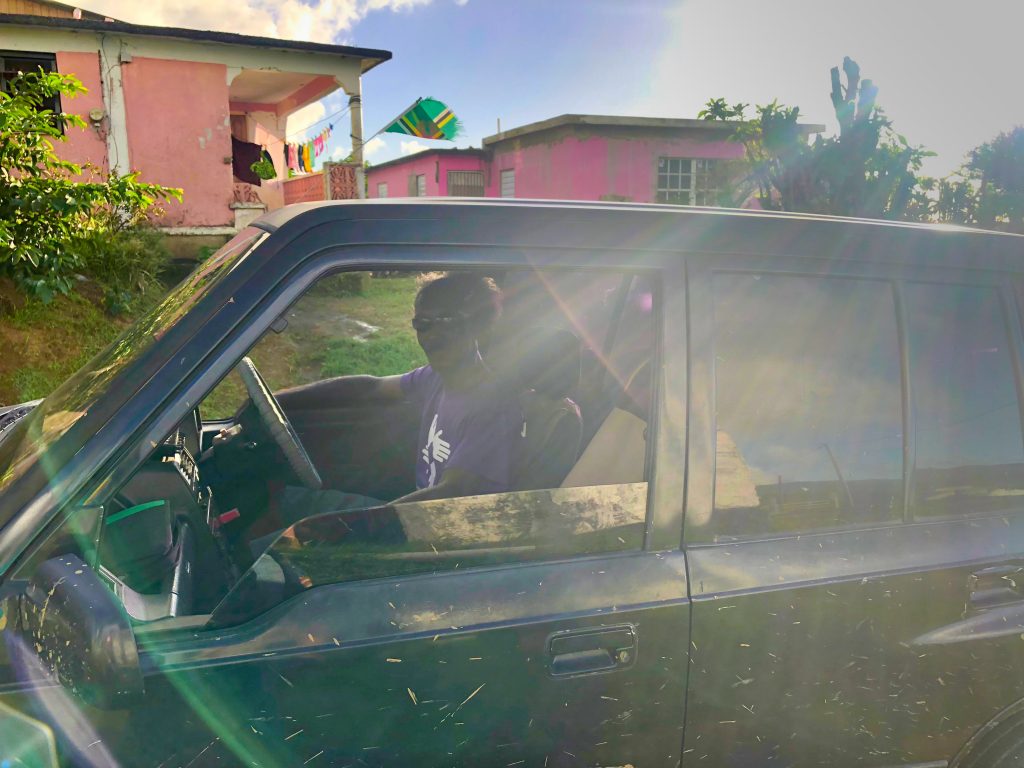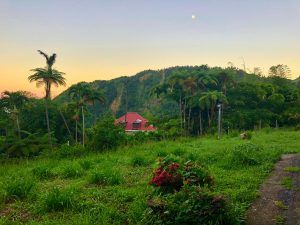A jagged chain of islands lies crescent-like pieces of broken jawbone separating the Caribbean and Atlantic waters. Christopher Columbus during his second voyage spotted a portion of land on November 3, 1493, declaring the island “Dominica” for the day he spotted it-Sunday, The Lord’s Day. The native Kalinago, who were also habitants to other surrounding islands, had named the land ‘Waitukubuli’ meaning “Tall is her body.” Over 500 years later these two names have morphed into the essence of what Dominica is; abundant and holy.
Sundays are sacred in Dominica. The capital Roseau, usually swamped in sexy Caribbean bustle, is quiet. You won’t have to maneuver past cocoa buttered bodies on crowded sidewalks, no fresh produce markets shaded by multi-colored tents at the harbor, the smells of baking bread have been left in Saturday night’s heat, there are no women camped outside the IGA supermarket selling passion fruits tied in plastic bags, and the French pizza shop where we’d go for wifi and wine has boarded up its Santorini-blue shutters.
You’ll find most of the locals in church. Where roughly 95% of the population is Christian and it shows. On every block voices of worship take the place of scattered bouyon soca music. The radio even blares ads for Christmas shopping ferry trips to neighboring islands with malls in October. But on Sundays, even KFC, the only fast-food chain on the island, is one of the few grills still roasting meat downtown and there’s always a long line.
I volunteered with All Hands and Hearts (AHAH) for two months building a new, hurricane-proof primary school in the hills of Morne Prosper after the destruction of Hurricane Maria. We worked six days a week, shoveling dirt, mixing concrete, twisting rebar wire, and chugging Kubuli, the local beer, on the walk back home.
Surprisingly, come Sunday our energies maintained and we’d often rise early, pack a day-bag and sunscreen and return muddy or salty up the dim-lit driveway to the volunteer base. Sundays meant waterfall hikes, boiling lakes, and ocean. I’d often venture out alone or with a few people. It’s a few hours away from 60 people living in one space, a chaos I quite miss.
On the construction site, many Caribbean masons had completed the bulk of the modeling. Locals were trained by the organization or came from other islands to work alongside the volunteers. Many of them lived in Morne Proser where AHAH also hired women to cook large amounts of chicken and lentils, wash our cemented purple t-shirts, or sell us vegetables from their garden. For a few months, the volunteers fueled the tiny village’s economy buying rum shots, salt-fish bakes, and chicken drumsticks served in foil.

The villages of Dominica vary. Houses next door could be one room, no running water, tin-roofed shack, or a three-story home of suburban proportion. Still, the community runs together, supporting without judgment. An observation, Karen, our native Mama, and dinner chef pointed out.
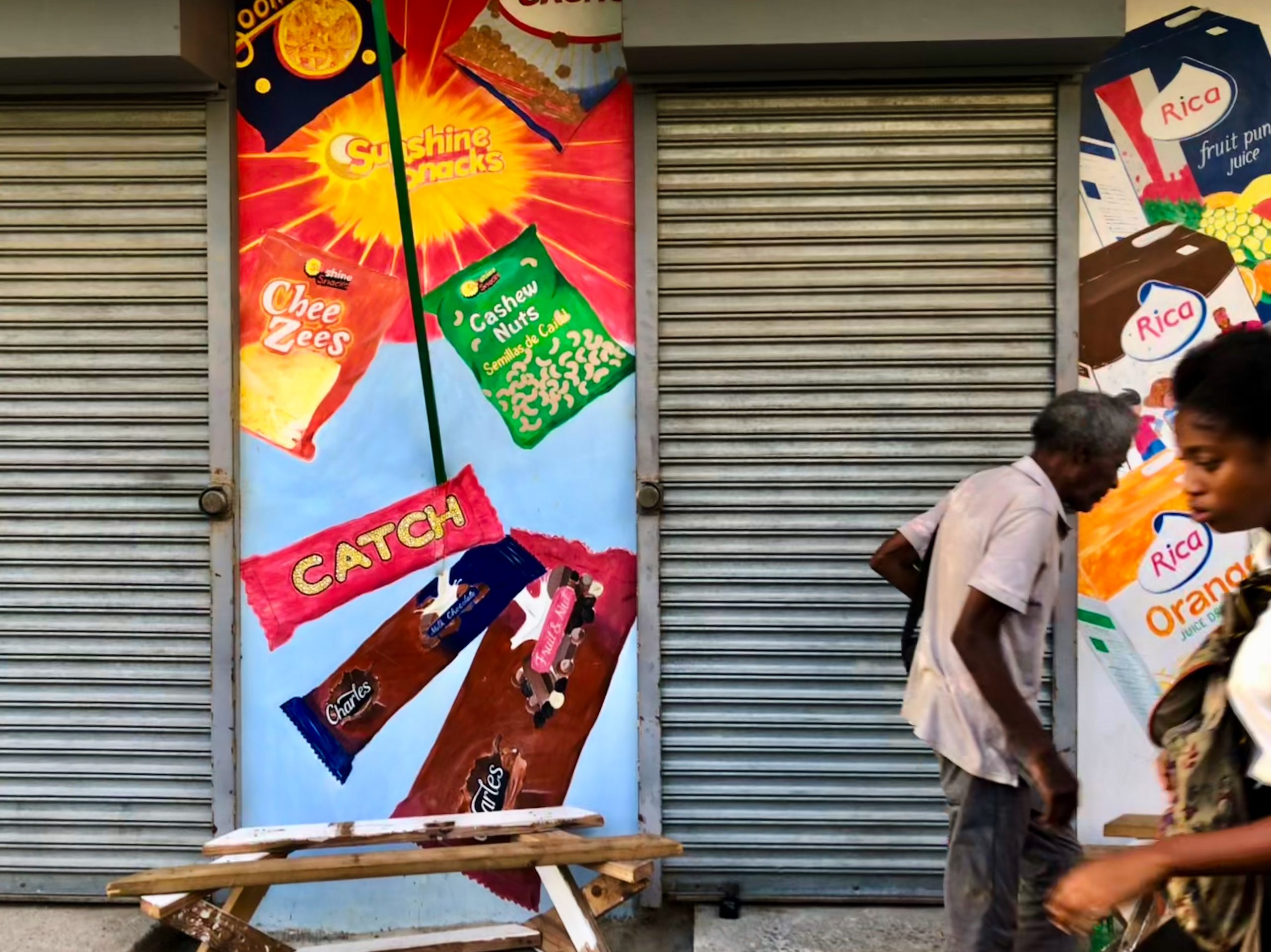
Simon, a local worker who lives in Morne Prosper, was to host a small party on one of the last weekends of the project. Our base, a Creole mansion donated for the time, sat at the end of Copthall, the neighboring village. We’d often hitchhike to the top of Morne Prosper at night up through the steep roadway that was often closed for landslides. Drivers were on the left and beeped warnings of passing when turning the sharp corners. In fact, the only beeps in Dominica are greetings and warnings, never aggression beeps. Simon’s home, tucked into vine lined paths, had several cars already parked outside.
Simon’s nature is kind and shy. When I first met him, he’d sing a sad American song from the early 60’s “Tell Laura I Love Her,” oddly, a song many people would sing to me on this island. He taught us the mechanics of tying rebar wire, how to maneuver our wrist, twisting the wire close to the ridged rebar, and finding the place to stop before the wire wrapped too tight and snapped. With each tied wire, Simon became more comfortable dancing with us to music even to an often-repeated Adele a British girl played but no one could say they were sick of. He loves music and after working for 12 years in Canada, Simon saved up enough money to buy glorious speakers that filled the trunk of his Suzuki. For as little as he’d talk during work, we could always hear Simon’s speakers fade from the top to the bottom of the hill. I had requested Rihanna on multiple occasions (mostly for shits and gigs) to blast from the Suzuki and one day he finally pulled up blasting “S.O.S” by Rihanna at our favorite bar.
The party, filled with familiar faces of local workers and volunteers had started on the wrap-around porch. Lilly a Canadian, Natalie a Czech, and I joined the workers rolling up in the back where the porch light couldn’t reach. Using Natalie’s iPhone light, we rolled our own joint with herb I happened to get from an aunt that owned a B&B near the center of the island. She gave me a sizable portion in a brown lunch bag. Her neighbor, who farms the plant, often gifts it in thanks for rides into town. Morne Prosper also happens to be the best climate on island to grow the plant wild, swears Johnny another local. While working on a new roof for one of the homes, I’d often bathroom-break behind the tall buds for privacy.
One of the workers approached our circle and with genuine intrigue wondered if we were smoking marijuana. I was still hesitant to answer because it is still illegal in Dominica and warranted to get kicked out of the program even though the other workers produced an umbrella of smoke around us. He understood our silence and continued with “I don’t smoke but I transport it on my boat from here to Guadalupe.” Finally relaxed in the presence of a sober mule and not a snitch, I lit the joint.
Lilly went off with our friend ‘Poncho’ to walk through the dark village. Natalie and I went inside the house where the only living room furniture of Simon’s were even larger speakers. Many congregated in the kitchen right beside us where ring stains of Kubuli were forming on counters.
Natalie and I began dancing to the music in the open space. At first with simple sways. Natalie’s eyes were unbothered. She danced with focus and grace. When we were flowing more into the music, jumping up and down, I noticed she lost herself. It’s actually how I first met Natalie. After my first day cycling through every human emotion ranging from “this is good” to “what have I done?” while shoveling dirt for 8 hours, all the volunteers returned, washed up in the cold indoor showers or outdoor ‘bucket showers’ and did whatever pleased them; journaling, yoga, snacking, reading. For Natalie, it was to put in headphones, stand facing the shrinking sun, and dance.
I was only jealous for a split second at the party, wishing for the complete wave of non-judgment to sweep me up and spit me out into whatever contortion of dance move my body felt. I’d sometimes look around the room and try to decipher if the faces of those who watched were one of admiration, wishing they had the courage to join, or one of disturbance. When I saw Natalie charade her moves into picking apples from a high branch that was the moment I didn’t care what I did and who saw it. I joined her, tossing our imaginary apples into my imaginary basket to very real Caribbean beats.
Simon’s neighbors joined us, they weren’t workers on the program but new faces to us. They watched Natalie and I admiringly and joined us when Simon switched the tempo to salsa. In pure joy, we danced and were transported to a scene without over-thinking.
The music suddenly sounded familiar, Simon had been looking for my reaction when he put on another Rihanna song. “Pon de Replay,” my middle school dance dream song. A song I recently would’ve skipped after the first chorus, became a complete orchestra start to finish under the influence of herb and homemade peanut punch, a Dominican favorite. Natalie and I traded goofy moves and both joined as a duet when “Please mister DJ/ tell me if you hear me/ turn the music up” made us fall to the floor pretending to beg. Grabbing our chests, heaving, as if the volume of this song could save the souls of everyone at this party. I danced through tears of laughter because as long as she kept going, I would too. We finished our Dominican night dance with a bow, hours worth of unsolicited entertainment for the entire party.
I never managed to make it to church on Sunday in Dominica. Something about being possessed by music in Caribbean company seemed spiritual enough, like dancing by a tribal fire. Sunday freshwater lake hikes and ocean snorkeling engulfed by visions of salty blue water and turtles also seemed connected to a higher being. Conversations with people of the community at peace through nature or anointed in Christ’s teachings seemed to count as conversations with Spirit.
